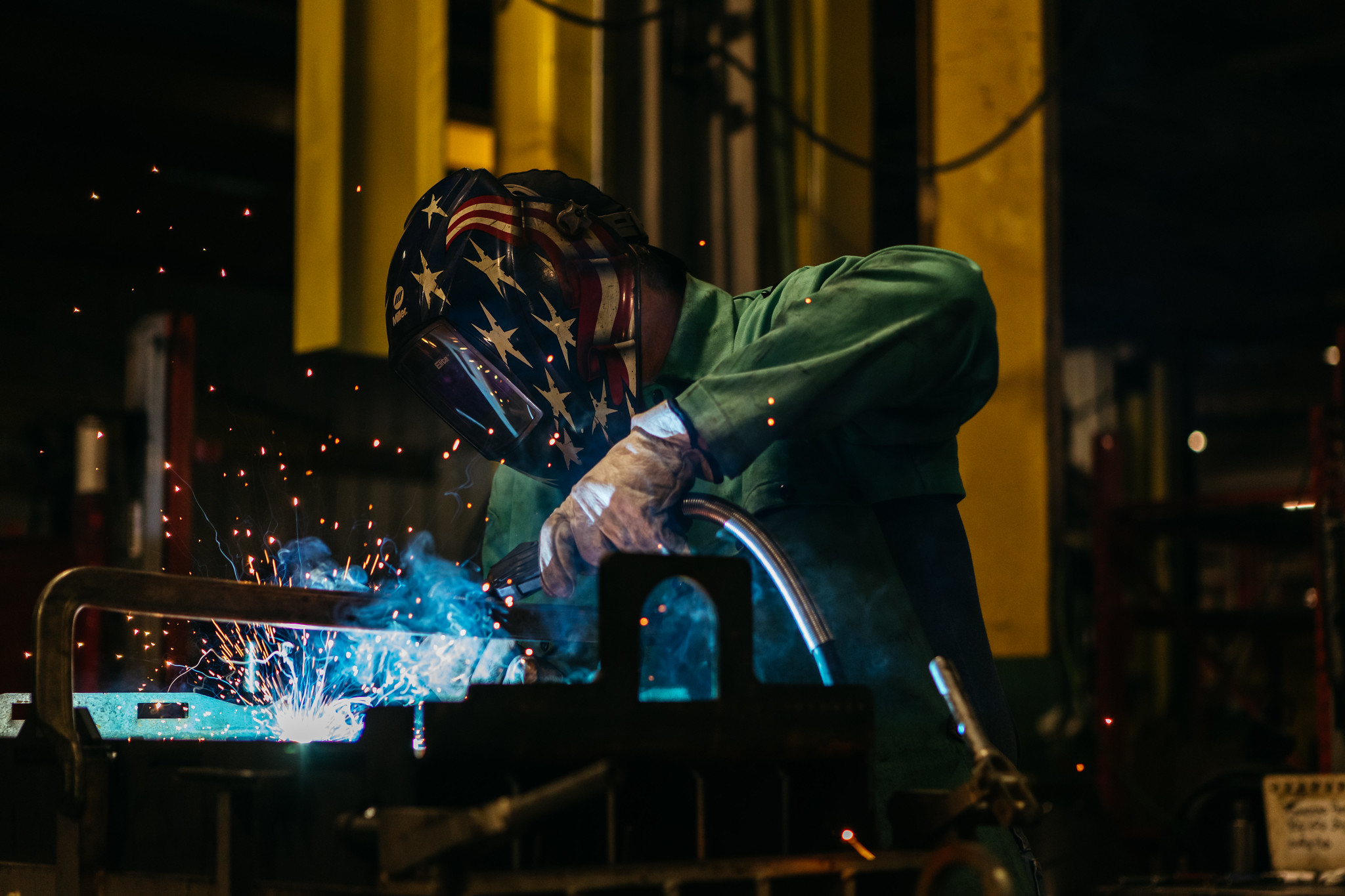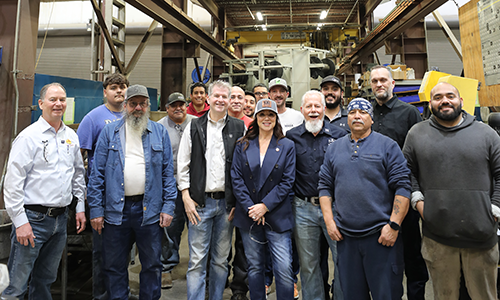AEM, in collaboration with Brookings Metro, hosted Milwaukee Mayor Cavalier Johnson, as well as local business and civic leaders, in Milwaukee last week for a lengthy and compelling discussion on the present and future state of Milwaukee’s infrastructure.
The event, titled Rethinking Milwaukee’s Infrastructure: The Challenges and Opportunities, provided a uniquely valuable opportunity for local stakeholders to weigh in on why infrastructure investment is so critical for Milwaukee and – more specifically – how it can better be advanced in the years ahead.
The event was the latest in a series AEM has hosted across the country to highlight policy recommendations outlined in Rebuild With Purpose: An Affirmative Vision for 21st Century American Infrastructure, which AEM released in collaboration with The Brookings Institution last year. More than 30 policy recommendations from the report were included in the bipartisan Infrastructure Investment and Jobs Act, which President Biden signed into law in 2021. That legislation is poised to deliver historic investments in the nation’s roads, bridges, locks and dams, as well as power lines and ports.
Throughout the remainder of this year, AEM’s Infrastructure Vision 2050 initiative is set to partner with employers, workforce development leaders, economic development officials and many others, to remind policymakers that the Infrastructure Investment and Jobs Act offers an unprecedented opportunity to accelerate infrastructure careers that pay higher wages, require short-term credentials and need a new generation of talent. As millions of workers around the country continue to struggle, federal, state and local leaders – in Wisconsin and across the country – need to harness the funding in ways that expand opportunities for the full diversity of the U.S. workforce – women and men, the unemployed and underemployed, as well as younger students and adult learners.
In his keynote fireside conversation with Amy Liu, vice president and director of Brookings Metro, at last week’s event, Mayor Johnson:
- Outlined his purpose for infrastructure and how it can – and should – be advanced in Milwaukee: “We need to make sure we build infrastructure that does not just repeat what we had in the past, but is a new vision for infrastructure… I want to have infrastructure investment on the local level that is people-centered, that helps to drive vibrancy and vitality in neighborhoods, and that attracts private sector investments, so that we can build neighborhoods across this city.”
- Emphasized the importance of working together to prioritize infrastructure investment: “No one person or entity can do it. It’s critically important to do what I have consistently talked about during the time I’ve been Mayor, which is (fostering) working partnerships and working teams… We need everyone to step up and be part of the solution.”
- Noted workforce is a crucial component to any conversation on infrastructure: Why future-oriented, people-centered infrastructure is going to require an emphasis on workforce: “One of the key pieces we’re missing in this community is stability. And I look back at the Milwaukee of the past, when we had a high volume of manufacturing jobs, we had the highest quality of life for African-Americans in the United States. And when those went to right-to-work states in the South or overseas for cheap labor, those jobs dried up and people in those neighborhoods got stuck and mired in poverty. When we wonder why, it’s because we love the stability that jobs – and particularly manufacturing jobs – provided in neighborhoods like that… So, I see opportunities infrastructure to train people to get back into the workforce.”
During a roundtable discussion with Adie Tomer, senior fellow at Brookings Metro, at last week’s event, several panelists provided their perspectives on rethinking Milwaukee’s infrastructure:
- Milwaukee Department of City Development Commissioner Lafayette Crump on the city’s future: “(The focus is) to ensure (Milwaukee) is a city that is truly equitable for all… Housing has to be a critical component of how we think about infrastructure, and how we think about making this community a city that achieves the need that Mayor Johnson has talked about to grow our city, but also making sure people can participate fully in all the different activities that this city has to offer.”
- Greater Milwaukee Foundation Senior Vice President and Chief Strategy Officer Kathryn J. Dunn on the importance of embracing a “Milwaukee for all” vision for the city: “We have a shortage of housing that’s affordable and that’s quality… We are 32,000 units short of housing for home ownership and 32,000 units short for rental for the current population. So, when we think about infrastructure, that’s what we’re prioritizing and thinking about, along with the intersectionality of other ways in which residents become prosperous.”
- Milwaukee Metropolitan Sewerage District Executive Director Kevin Shafer on water’s role as it relates to the future of infrastructure in Milwaukee: “What we’re trying to do is focus the discussion on protecting drinking water for folks in the future and taking a long vision on the watershed… The climate has changed, and it is changing. We’re facing that paradigm right now.”
- Metropolitan Milwaukee Association of Commerce President Tim Sheehy on what it will take to improve Milwaukee’s infrastructure: “When we think about (infrastructure), we think about executing through four pillars. We want to make sure we continue to grow. We want to make sure we have talent. We want to make sure the community is livable. And we want to make sure there’s equitable opportunity… When I was thinking about the infrastructure piece, I was thinking about do we want to unwind or uncork? And I think we want to unwind. And by that, I mean, as we move to new ways to spend money, and we look at the challenges – whether they’re digital, water, transportation infrastructure – I think I want to make sure we unwind those policies and move things in another direction, and not uncork.
Throughout the remainder of the year, AEM’s Infrastructure Vision 2050 initiative will continue to drive the conversation about infrastructure across the state of Wisconsin and throughout the United States. This will be accomplished through a series of events that serves to highlight the policy recommendations outlined in Rebuild With Purpose: An Affirmative Vision for 21st Century American Infrastructure and the historic opportunity to close the skills gap and expand economic opportunity well beyond the infrastructure bill’s launch and into the years to come. For more information about Infrastructure Vision 2050, visit www.iv2050.org or contact AEM’s Katrina Bishop at kbishop@aem.org.
For more AEM news and updates, subscribe to the AEM Industry Advisor.





